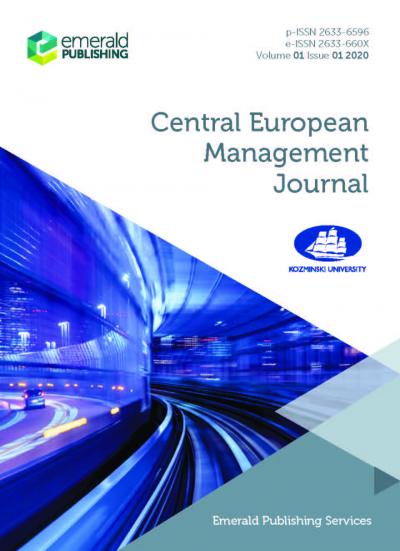Positive Psychological Capital Concept: A Critical Analysis in the Context of Participatory Management
Agnieszka Bożek
Wojtyla Institute – Science Foundation
2015 23 (3) Central European Management Journal
DOI 10.7206/mba.ce.2084-3356.148








